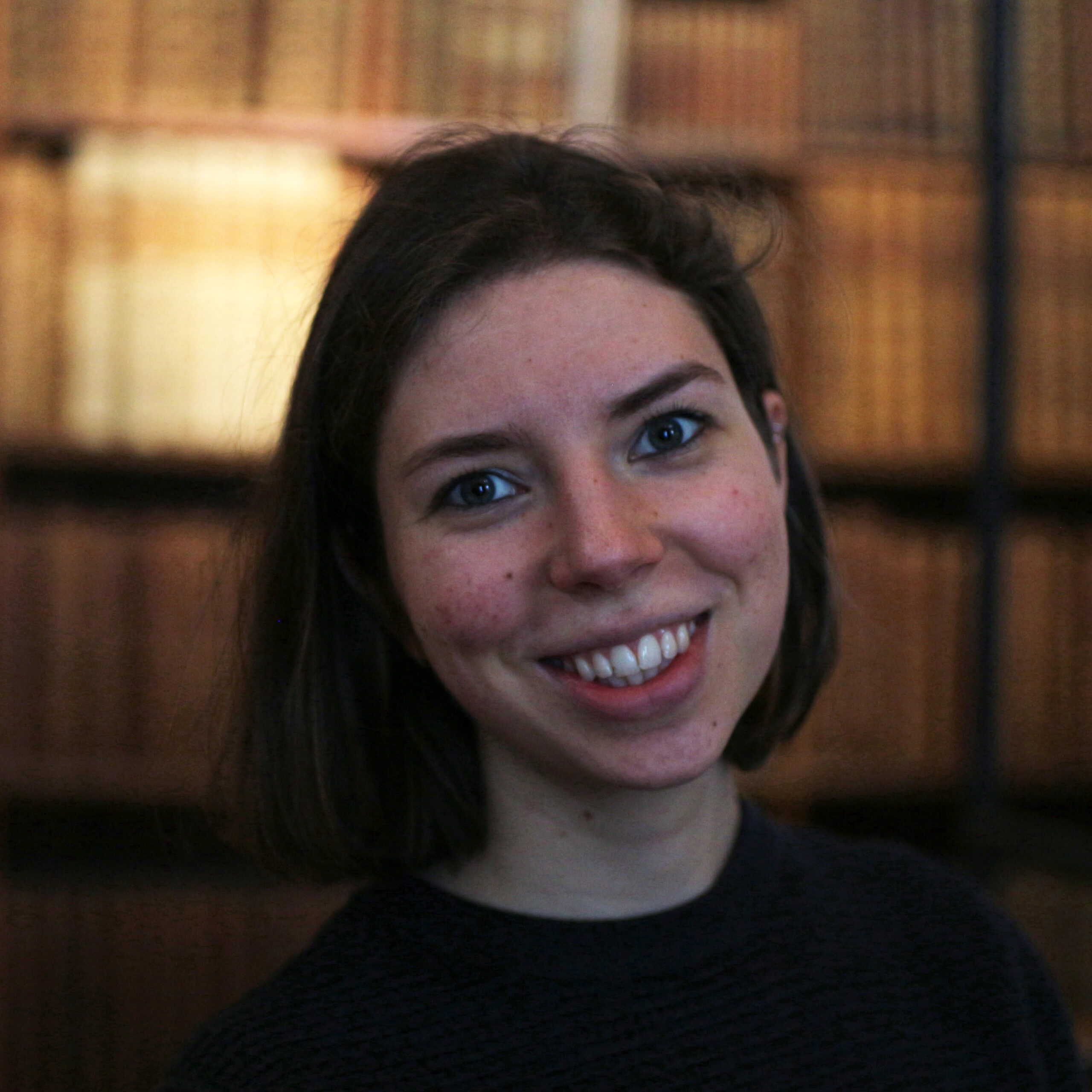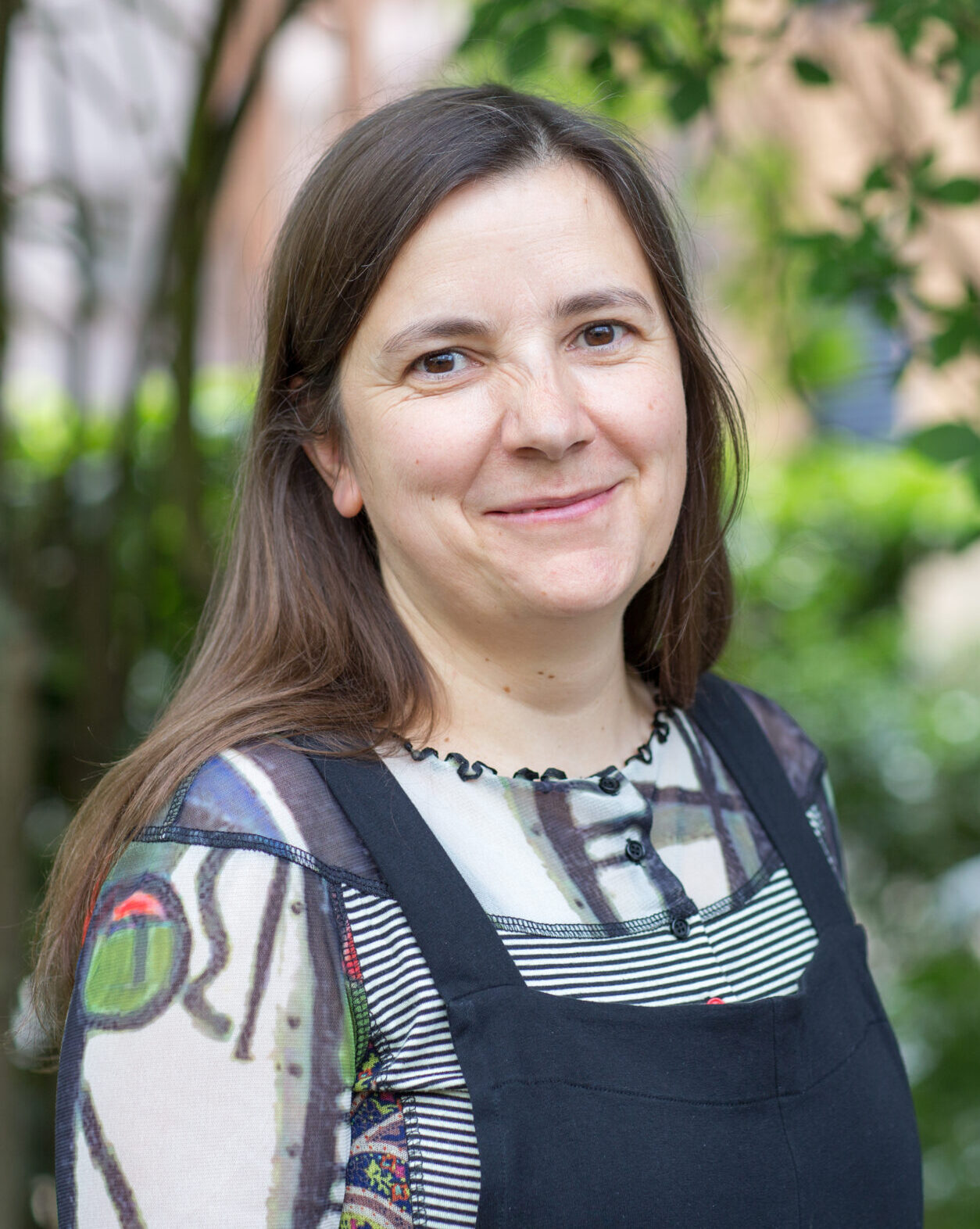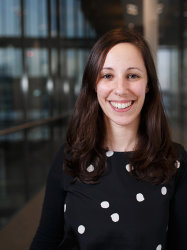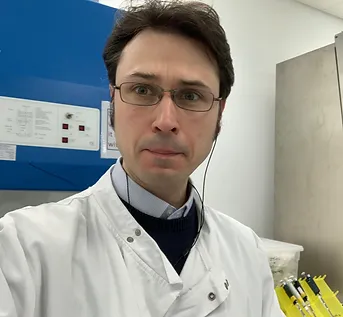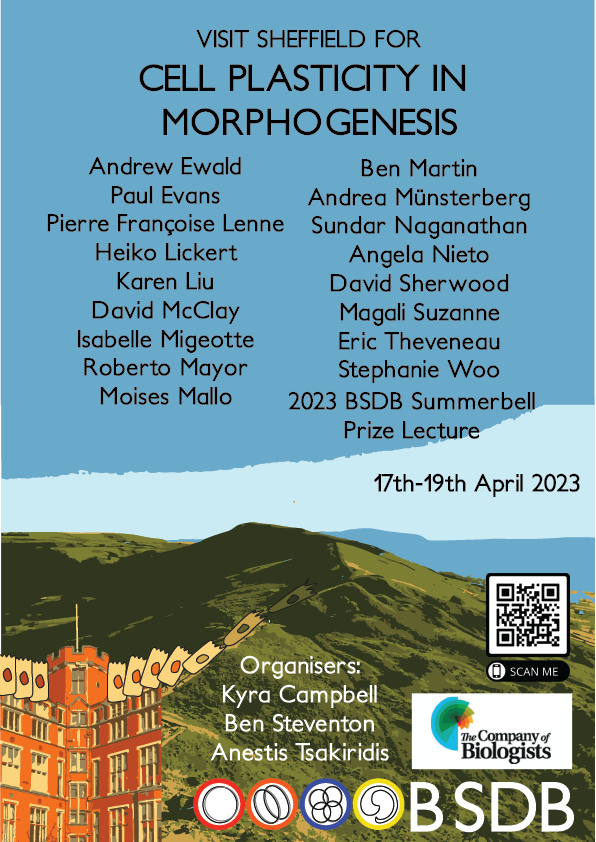The Beddington Medal is the BSDB’s major commendation to promising young biologists, awarded for the best PhD thesis in Developmental Biology defended in the year previous to the award. Rosa Beddington was one of the greatest talents and inspirational leaders in the field of developmental biology. Rosa made an enormous contribution to the field in general and to the BSDB in particular, so it seemed entirely appropriate that the Society should establish a lasting memorial to her. The design of the medal, mice on a stylised DNA helix, is from artwork by Rosa herself.
Like many years, it was a tough decision for the BSBD committee to choose a winner for the 2023 Beddington medal. We are pleased to announce that this goes to Rasa Elmentaite, for her PhD work at the Sanger Institute on human gut development.

Rasa completed her PhD early in 2022 under the academic supervision of Sarah Teichmann, and is a phenomenal candidate for this prestigious award owing to a series of outstanding discoveries in human developmental biology. She is an exceptional young scientist with scientific and personal maturity well beyond her career stage and without doubt a future leader in the field.
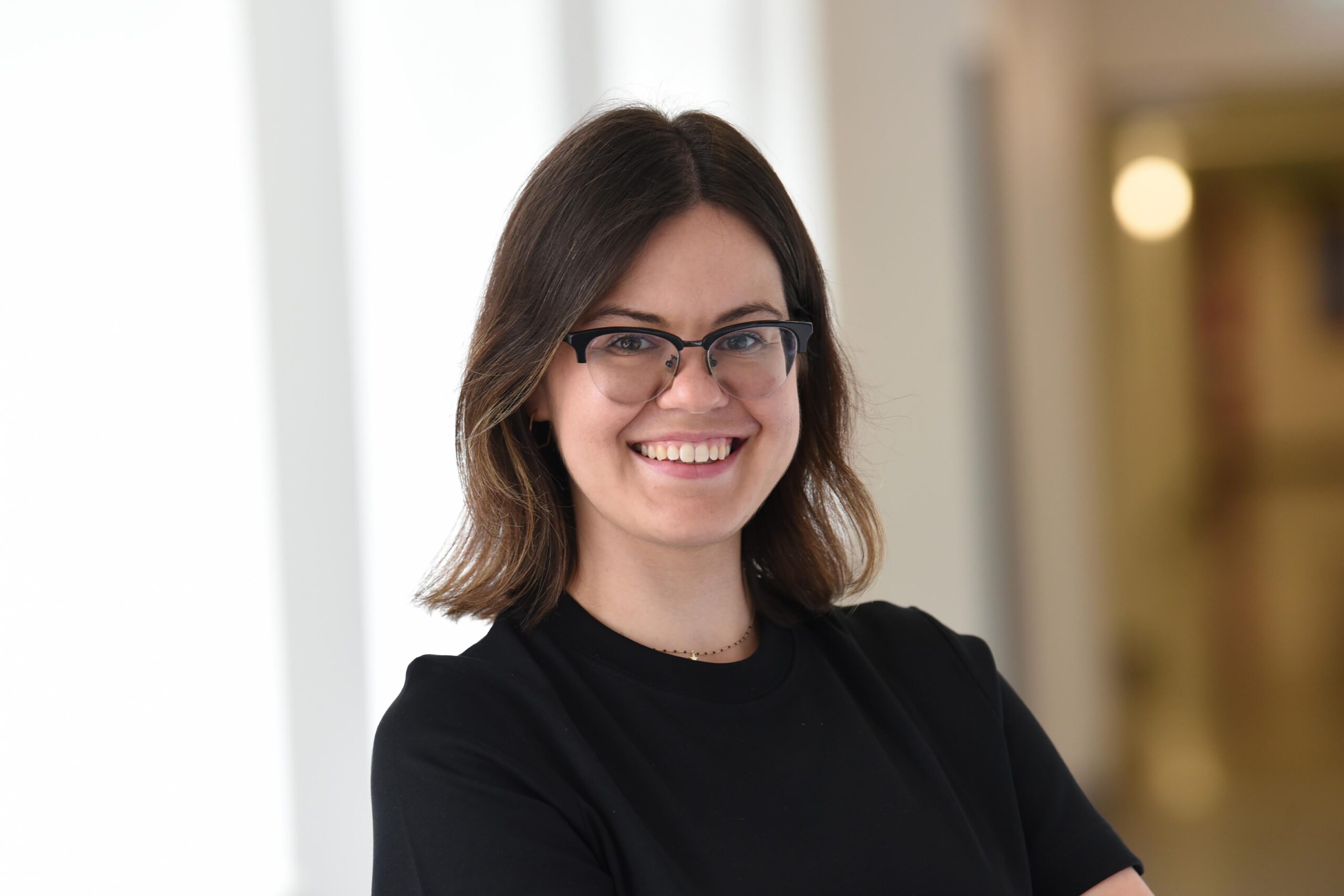 Rasa received an Integrated BSc and MSc degree in molecular and cell biology from the University of Glasgow. During this time, she actively sought research opportunities and received fellowships for diverse research projects, including working with model organisms to understand intestinal stem cell biology and pain pathways in the central nervous system. Rasa’s active and impactful contribution to diverse research projects, her scientific intuition and independence set her apart early on, and earned her a place in the highly competitive 4-year Wellcome Sanger PhD programme in 2017.
Rasa received an Integrated BSc and MSc degree in molecular and cell biology from the University of Glasgow. During this time, she actively sought research opportunities and received fellowships for diverse research projects, including working with model organisms to understand intestinal stem cell biology and pain pathways in the central nervous system. Rasa’s active and impactful contribution to diverse research projects, her scientific intuition and independence set her apart early on, and earned her a place in the highly competitive 4-year Wellcome Sanger PhD programme in 2017.
Around that time, our understanding of how the tremendous cellular diversity of the human intestinal tract was generated during development was still in its infancy. Rasa saw how emerging single cell and spatial technologies applied to human tissues – sampled across the lifespan and across the spatial zones of the gut – could fill this gap in an unbiased manner. To achieve her aims, Rasa immediately immersed herself into the genomics field and rapidly built programming and data analysis skills, highlighting an impressive aptitude for research at the interface of wet and dry lab science. Over the course of her PhD, she obtained, processed and analysed human tissue samples from up to 11 intestinal regions and different developmental stages to generate among the first, most comprehensive and finest quality single cell dissections of the developing human intestinal tract. This fantastic achievement was reported in two high impact first author publications (Elmentaite et al., Dev Cell, 2020, 103 citations; Elmentaite et al., Nature, 2021, 117 citations).
Rasa‘s discoveries have changed our understanding of human gut development, with important clinical implications. She charted enteric progenitors as they colonise intestinal tissues and give rise first to specific subsets of enteric neurons, and later to diverse types of supporting glia. She located expression of genes associated with Hirschsprung’s disease (e.g. RET) to specific neural lineages, providing insights into the disease development at early embryonic stages. This has potential implications for treatment and therapy development.
One of her most impressive achievements was, for the first time, to describe the three key cell types that orchestrate lymph node and gut-associated lymphoid tissue formation in human development. This cell circuitry in second trimester human development consists of “lymphoid tissue initiator” and “organizer” cells of lymphoid, mesenchymal and endothelial origin, which signal to recruit other immune cells to orchestrate aggregation at specific gut sites. She revealed a re-initiation of this cellular program during inflammation in paediatric Crohn’s disease, to recruit and retain immune cells to the site of damage. Rasa’s discovery that developmental programmes are adopted in inflammatory bowel disease is one with wide impact for all inflammatory conditions, with potential to inform the design of next generation cell-centred therapeutics.
Rasa’s highly collaborative spirit led to valuable contributions to twelve research projects in human single cell and developmental biology. These include a comparison of cell identity in vivo versus in vitro in intestinal organoids (Beumer et al., Cell, 2020), a collaboration on the developmental origins of neuroblastoma cancers (Kildisciute et al., Science Advances, 2021), and two papers mapping the immune system across organs in development and adult stages (Dominguez-Conde, Xu et al. Science 2022; Suo, Dann, et al. Science 2022). She also led a major effort in reviewing cell lineages that are common across tissues for a review invitation in Nature Reviews Genetics (Elmentaite et al., 2022). This impressive output demonstrates Rasa’s general intellectual curiosity and ability to look beyond her own research programme to wider issues in developmental biology.
As described above, Rasa’s list of achievements during her PhD is nothing short of spectacular and has transformed our understanding of gut development and disease. She is a most worthy winner of the Beddington Medal.
- Sarah Teichmann
Selected papers:
Elmentaite R, et. al. (2020). Single-Cell Sequencing of Developing Human Gut Reveals Transcriptional Links to Childhood Crohn’s Disease. 10.1016/j.devcel.2020.11.010.
Elmentaite R, et.al. (2021). Cells of the human intestinal tract mapped across space and time. 10.1038/s41586-021-03852-1.

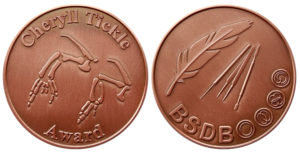
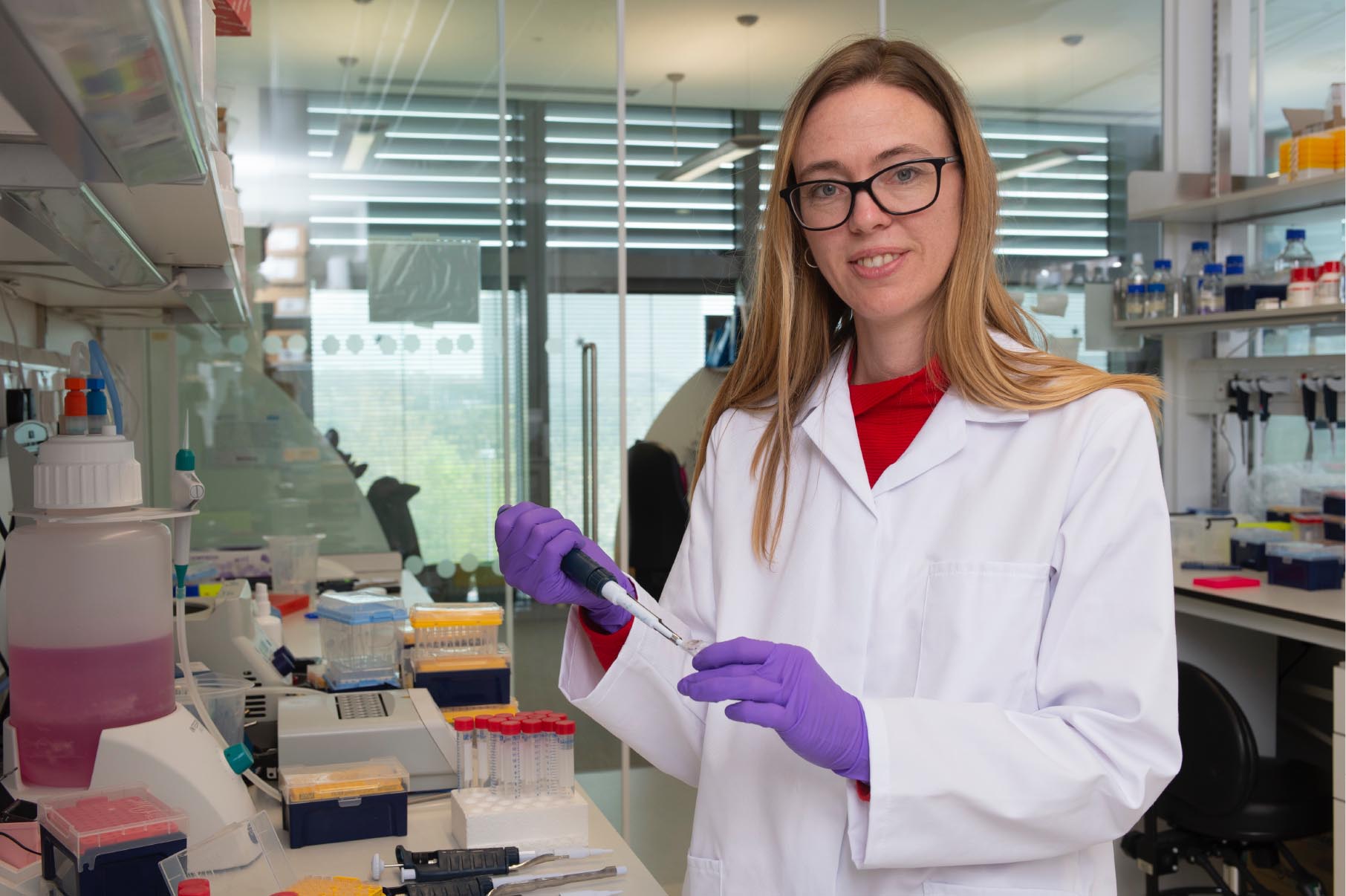 Madeline is a most worthy recipient of the Tickle Medal. Madeline started her independent laboratory in 2015 at the Medical Research Council Laboratory of Molecular Biology (University of Cambridge) following landmark and courageous work developing organoids for the most complex and inaccessible of organs – the human brain. To do so, Madeline, looked to Developmental Biology to rationally decide upon conditions that might guide cellular self-organisation into variations of this organ, or regions or aspects of it (e.g., mimicking different axial levels and stages, more recently capable of secreting cerebrospinal fluid). Although there is not an embryo in sight, Madeline’s work has provided unprecedented functional access to models and perturbations relevant to understanding human brain development. It has also allowed probing of likely mechanisms of brain evolution and indeed its marriage with development, in the field of “evo-devo”. Finally, it has allowed investigation of intersections between development and human disease. Under her guidance, iterations of healthy and disease modelling brain organoids are contributing a wealth of what we could call equally “cellular synthetic biology” or “engineered developmental biology”. We are learning what it takes – at the molecular, cell biological, and supra-cellular levels – to coax cells into building particular fate and morphological ensembles that recapitulate important aspects of brain development.
Madeline is a most worthy recipient of the Tickle Medal. Madeline started her independent laboratory in 2015 at the Medical Research Council Laboratory of Molecular Biology (University of Cambridge) following landmark and courageous work developing organoids for the most complex and inaccessible of organs – the human brain. To do so, Madeline, looked to Developmental Biology to rationally decide upon conditions that might guide cellular self-organisation into variations of this organ, or regions or aspects of it (e.g., mimicking different axial levels and stages, more recently capable of secreting cerebrospinal fluid). Although there is not an embryo in sight, Madeline’s work has provided unprecedented functional access to models and perturbations relevant to understanding human brain development. It has also allowed probing of likely mechanisms of brain evolution and indeed its marriage with development, in the field of “evo-devo”. Finally, it has allowed investigation of intersections between development and human disease. Under her guidance, iterations of healthy and disease modelling brain organoids are contributing a wealth of what we could call equally “cellular synthetic biology” or “engineered developmental biology”. We are learning what it takes – at the molecular, cell biological, and supra-cellular levels – to coax cells into building particular fate and morphological ensembles that recapitulate important aspects of brain development.
